The War for Observable Information
How (exactly) dirty information destroys our shared reality and what we can do to fix it.
👋 Hi to 3,051 climate buddies 🌳
Delphi Zero explores the interplay of climate, energy, and security 🌳🔋🛡️
📧 If you are opening this essay in your email inbox, I recommend to click on the title of this piece to enjoy the full-length version in the browser.
Happy International Fact-Checking Day, everyone 🎉
You most likely subscribed here to read about climate and energy.
Nonetheless, the current geopolitical moment is important and I want to share a useful framework that I use quite regularly - the OODA Loop 🔁
It is an incredibly handy tool to audit learning and business processes. But today, I’ll discuss it through the lens of information flows through society. Hopefully, it will give you an additional tool to make sense of what’s going on.
This is part two of an ongoing series about various aspects of national/international security:
Transatlantic Rift - What you can do in times of crisis.
(this post) The War for Observable Information - How (exactly) dirty information destroys our shared reality. And what we can do about it.
I’ll be back with climate/energy content shortly, but today, we’ll dive deep into a fascinating communication rabbit hole 🕳️
The War for Observable Information
By Art Lapinsch
Why do governments regulate energy markets but don’t care about sneakers?
It’s because governments focus on things that can have an outsized impact on society. Positive as well as negative.
By looking at national regulatory bodies, you can figure out their priorities:
The Objective Is to Keep Essential Flows Running
In Germany, the Bundesnetzagentur (the German infrastructure regulator) regulates the following:
⚡️ Energy (electricity & gas) → You can read my extensive piece about energy regulation 101
💡 Information
📱 Telecommunication (broadband, cellular, and radio)
🛜 Digital (internet)
✉️ Postal Services
🛤️ Railways
In a country like the US, some additional markets are regulated:
In my mind, these industries have one thing in common: they enable the flow of something through society.
Stop energy flows and nothing works. Stop transportation and people are stranded. Stop food and all hell breaks loose.
One of these somethings is information. Let’s see what happens if/when information flows break down 👇
The Flow of Information and the OODA Loop
My ears tell me that something is loud. My skin tells me that something is hot. My eyes tell me that something is bright.
If my senses stop feeding information to my brain, I stop perceiving it and have a limited impression of my surroundings. It becomes more difficult for me to maneuver in my environment.
There’s a great framework that analyzes how information is processed.
The OODA Loop 🔁
If you’re new to this framework, I highly recommend you to dive into Taylor Pearson’s Ultimate Guide to the OODA Loop. In it, he writes:
In the late 1950’s, [John] Boyd was the best fighter pilot in America and possibly the world. He was called “Forty-Second Boyd” because he could defeat any opponent in simulated air-to-air combat in less than forty seconds.
…
Moving from warrior to intellectual, he worked to synthesize what he learned from all these domains to answer the question: How do individuals and organizations win in an uncertain environment?
The ultimate result of this synthesis was the OODA Loop.
The OODA in OODA Loop is an acronym that stands for:
Observe
Orient
Decide
Act
It is a description of a process that you are already doing every minute of every day. …
The OODA loop is often seen as a decision making model, but can be more accurately described as a model of individual and organizational learning and adaptation.
The Causes of Organizational Stagnation
I agree with John Boyd that the OODA Loop is applicable not only for individuals (fighter pilots; professionals; citizens) but also for organizations (companies; NGOs).
Let me show you.
In 2020 - the year of Covid - my team was using the OODA Loop to audit and resolve broken communication silos caused by a sudden shift from working in a co-located manner to working remotely.
Anyone can use the OODA Loop framework as a tool to troubleshoot.
Observe: How do we observe new information? What type of information do we observe? Are there obstacles to observing correct information?
Orient: What are our internal references for making sense of the observed information? How do we put new information into our current context?
Decide: What are our decision making algorithms? Do we have decision guidelines?
Act: How (and how quickly) can we translate our decisions into action? How do we measure whether our decisions & actions achieve the desired outcome? How do we learn and adapt based on the new results?
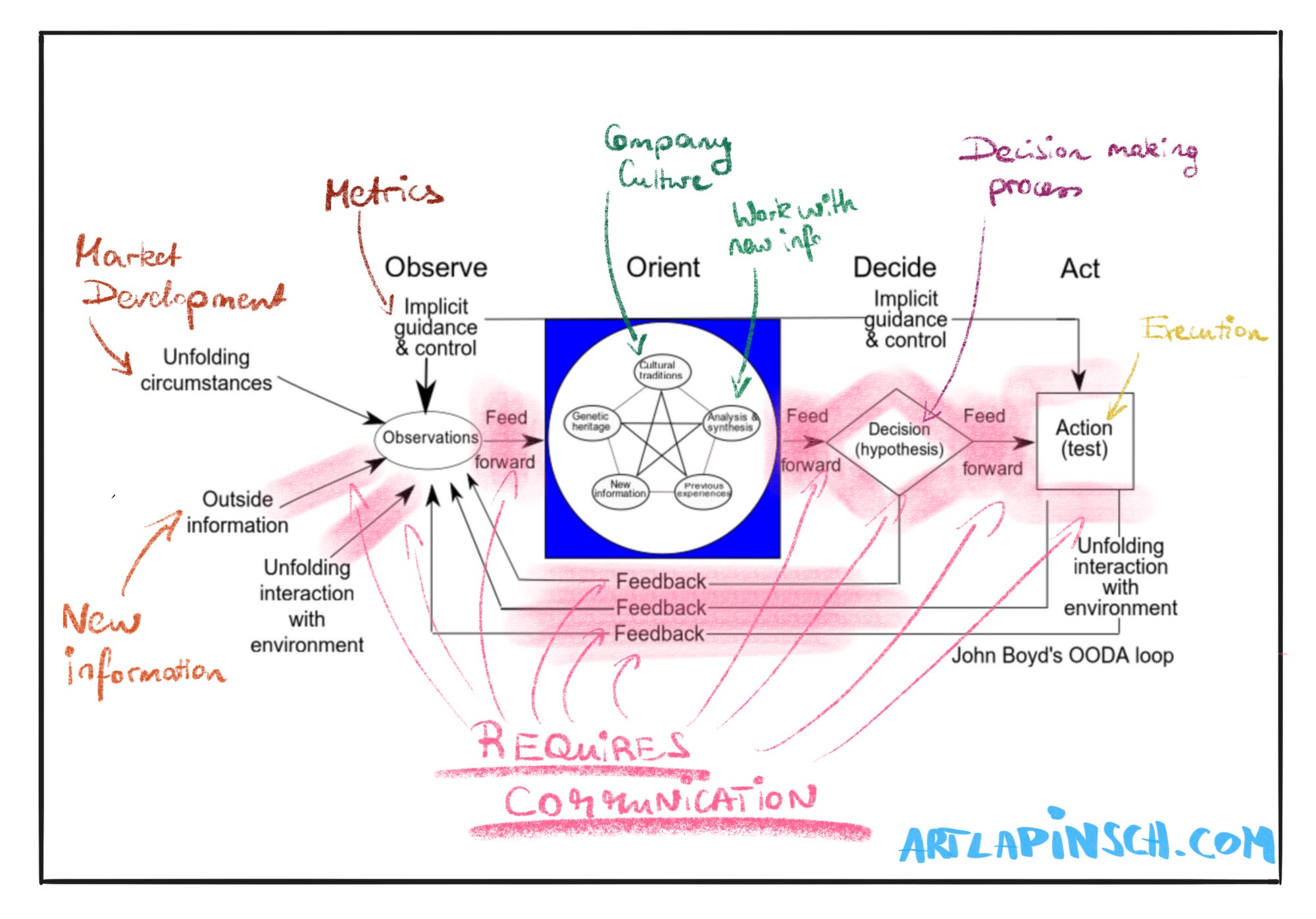
The issue was that our organization was using many different communication channels (various Slack instances; MS teams; Whatsapp; email; in-person conversations; etc.)
There was no single-source-of-truth.
As a result, all teams existed within different informational realities. They were not able to collectively adjust to new circumstances.
Imagine Company A and Company B compete in the same market. One of them gets to change their strategy once a year while the other one gets to readjust to changing market conditions once a week. Company A has one adaptation loop while Company B has gone through 52 adaptation loops. At the end of a year, which one do you think will be better adapted to the market realities?
I’m telling you all of this because the OODA Loop doesn’t only work for individuals and organizations but also for societies.
And currently, there’s a fight over observable information - the first step of our collective OODA Loop.
The Attack on Observable Information
Donella Meadows - the godmother of systems analysis - once said:
“You can drive a system crazy by muddying its information streams.”
And that’s exactly what is happening all around us.
You probably heard that democracies around the world are in decline.
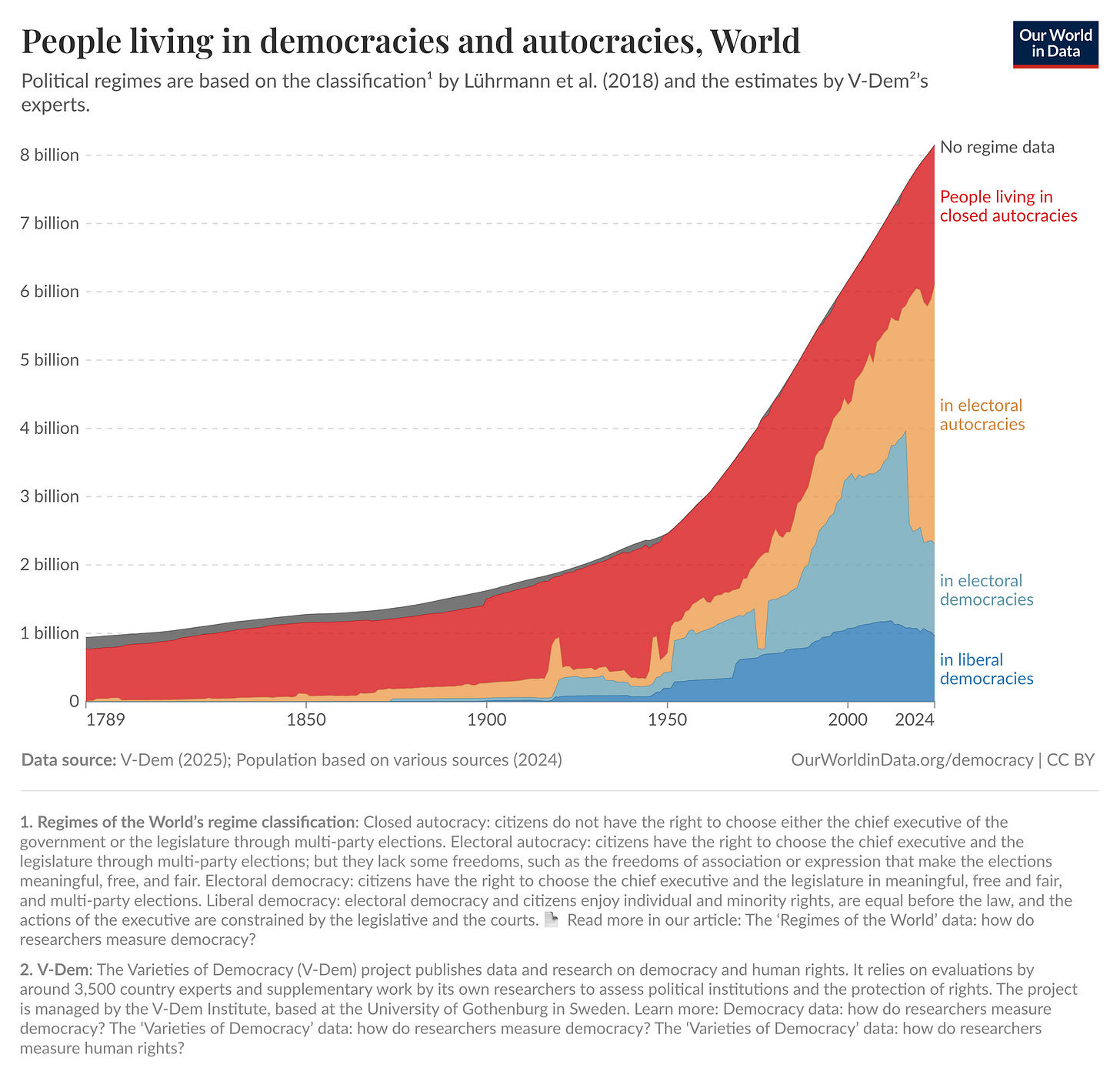
What’s replacing them? Autocracies.
An autocracy is a political system with an in group (a single ruler and his inner circle) and an out group (i.e. everyone who doesn’t look, talk, and behave like them).
The in group rules the political system to their own benefit by restricting the out group from interfering. Order and obedience is more important than personal freedom.
In Europe, it’s the various flavors of nationalist parties in France, Poland, Hungary, Austria, etc. In the US, it’s the current administration. And all the list goes on all across the world.
You most likely know who is pulling such shenanigans in your own backyard.
They try to do that by implementing a variation of “The Autocratic Playbook.” (I added the ⚠️ emoji to all the plays that directly impact the flow of information)
The key “plays” in The Playbook are to:
Weaponize Fear – Embrace a language of violence, promote a more punitive culture, leverage military might at home. Give critics reason to believe they’ll be harmed if they oppose.
Target Outsiders — Stoke the fires of xenophobia by demonizing immigrants and foreigners. Blame domestic problems including economic woes on these scapegoats, and depict political opponents as sympathetic to these imagined enemies.
Undermine Institutions — Take over the courts, eliminate checks and balances, undo established treaties and legislation that limits executive power, weaken protections for free and fair elections.
⚠️ Rewrite History — Exert control over schools and the media to indoctrinate the public with beliefs that reinforce autocratic power.
Exploit Religion — Appeal to the religious majority while targeting minorities. Conflate national identity with religious identity.
⚠️ Divide and Conquer — Use hate speech and encourage violent actors to widen social rifts and use manufactured crises to seize more power.
⚠️ Erode Truth — Attack the press as an “enemy of the people”; dismiss negative reports as “fake news,” counter legitimate information with disinformation, or “alternative facts.” Blast the media landscape with endless scandal and contradiction to overwhelm the traditional fail-safes.
And information flows are a key lever to achieve “order and obedience.”
Problem #1 (Systemic): Bad Actors Pollute the Signal/Noise Ratio
In politics, the information space is a key battleground.
Autocratic regimes try to implement the following tactics to change what is being observed by the public.
🤫 Censorship: You can’t say certain things → results: Narrative echo chambers; etc.
🤔 Misinformation: You hear wrong information that sounds credible → results: Erosion of trust; Loss of shared reality; etc.
😵💫 Flooding the Zone: You hear contradicting information → results: cognitive bandwidth is overloaded; Analysis paralysis; etc.
The signal/noise ratio is being changed. Less signal. More noise.
Collective inaction is their goal.
I’ve you ever heard the saying “garbage in, garbage out” then you know what this is about. A worse signal/noise ratio has downstream consequences on our collective OODA Loop:
Observe: We observe different things.
Orient: We have conflicting situational assessments.
Decide: We decide much slower.
Act: We fail to act in a coordinated manner.
Welcome to the end of our shared reality.
Problem #2 (Individual): We Are Abstracted from Reality
This is compounded by the fact that most of us no longer look at the world with our own eyes. We look at our screens and accept the information on it at face value.
We are the people sitting in Plato’s Cave.
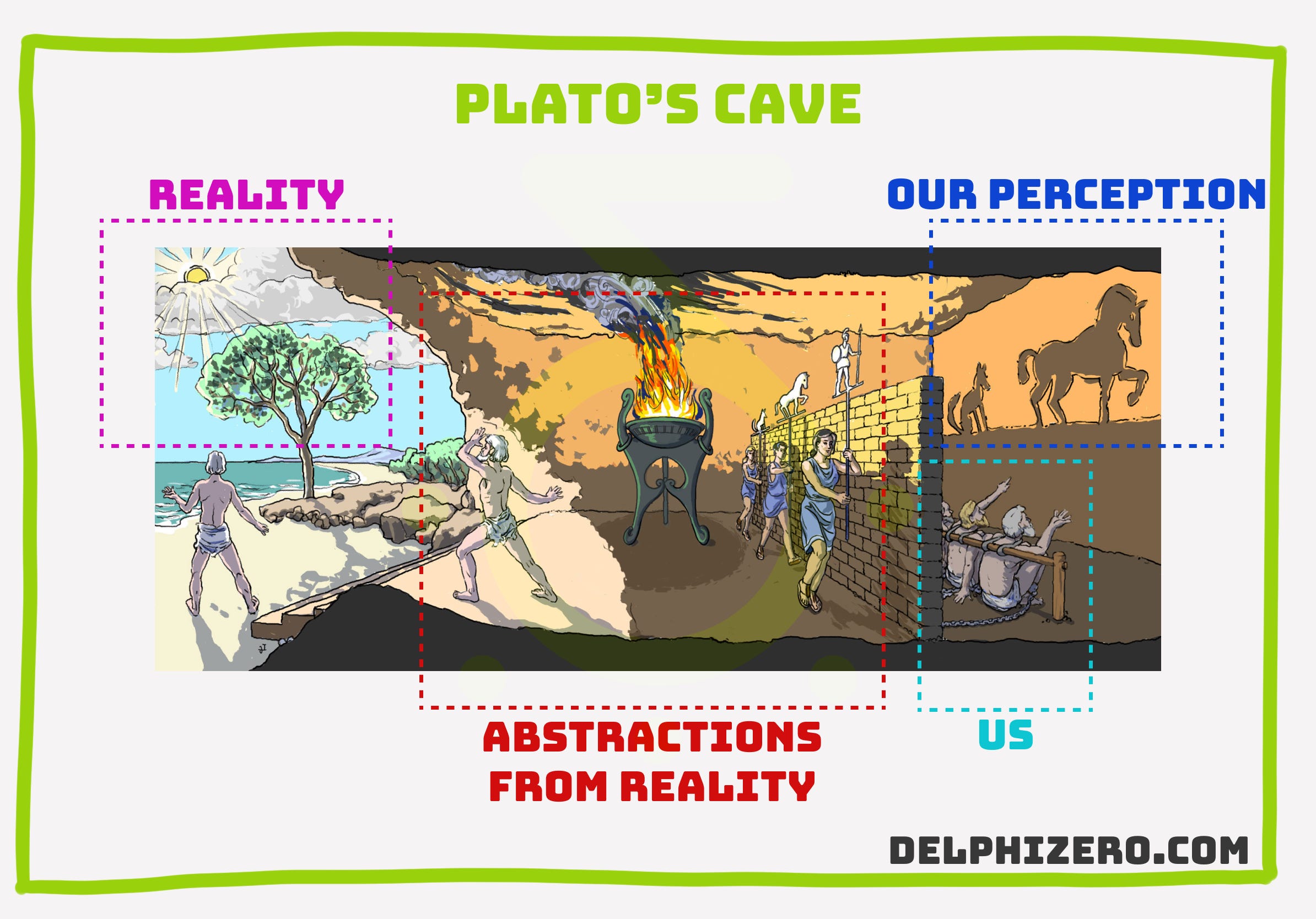
Don’t worry, I’m not going to ask you to join some Conspiracy BS Telegram channel but I hope that all of us at least appreciate that there is an inherent risk when information is consumed through abstracted channels.
It’s easier to selectively change what’s shown on a screen than to change what’s actually going on in the real world.
It might look bleak but there are some beacons of hope.
The Resistance to Protect Observable Information
At the end of the day, autocracies are made of humans like you and I.
And recent history shows that it’s possible to turn autocratic movements around.
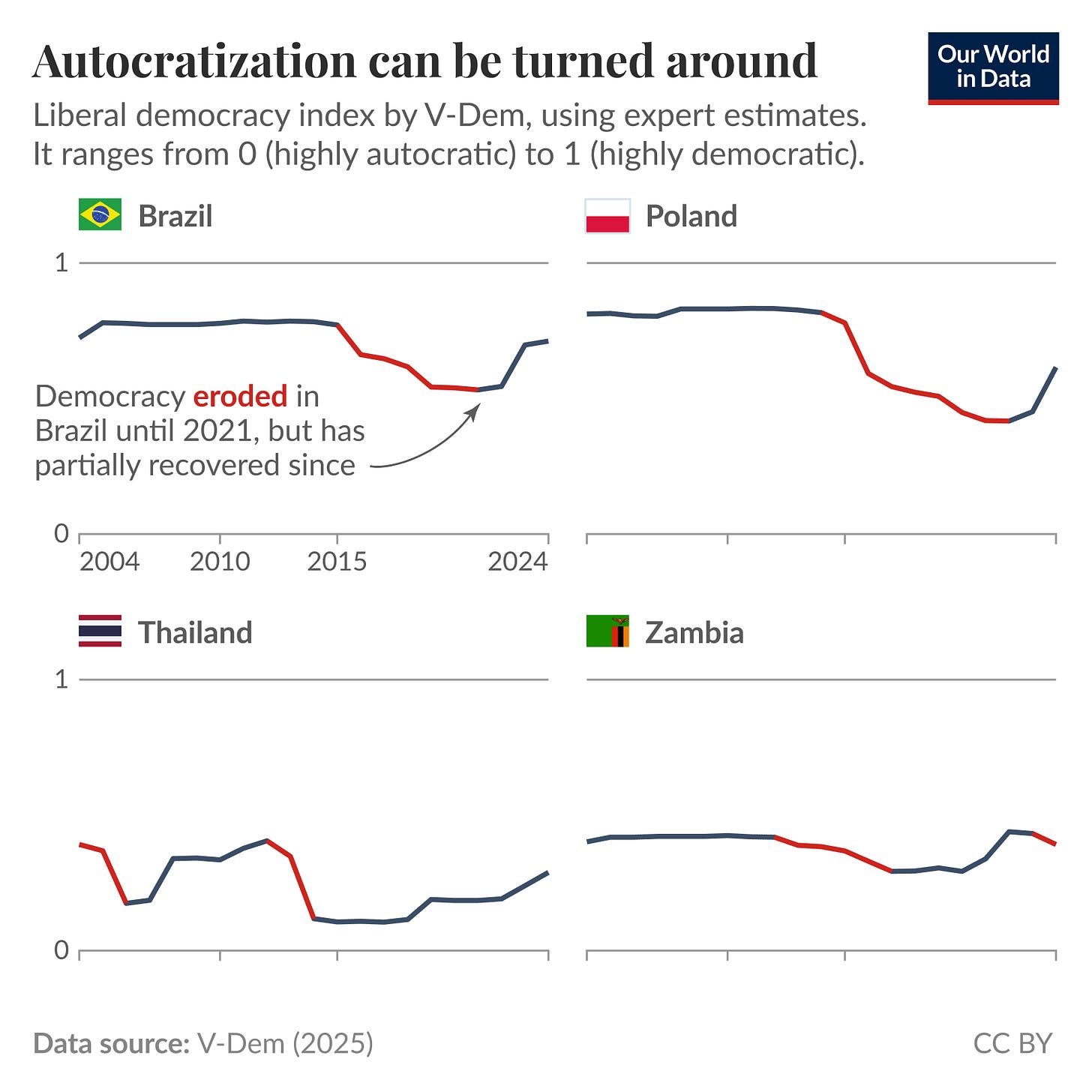
Solution #1 (Systemic): Protect and Fight for Institutions
Systems are stable when they have balancing mechanisms.
In democracies, there are various:
Courts: The rule of law makes sure that everyone plays by the same rules.
Elections: Elections allow the population to make adjustments by voting in regular intervals.
Free Press: As Jeffrey Goldberg (of SignalGate fame) says: “The role of journalism is to inject a dose of reality into the cognitive system of a society.” (watch these 2 minutes)
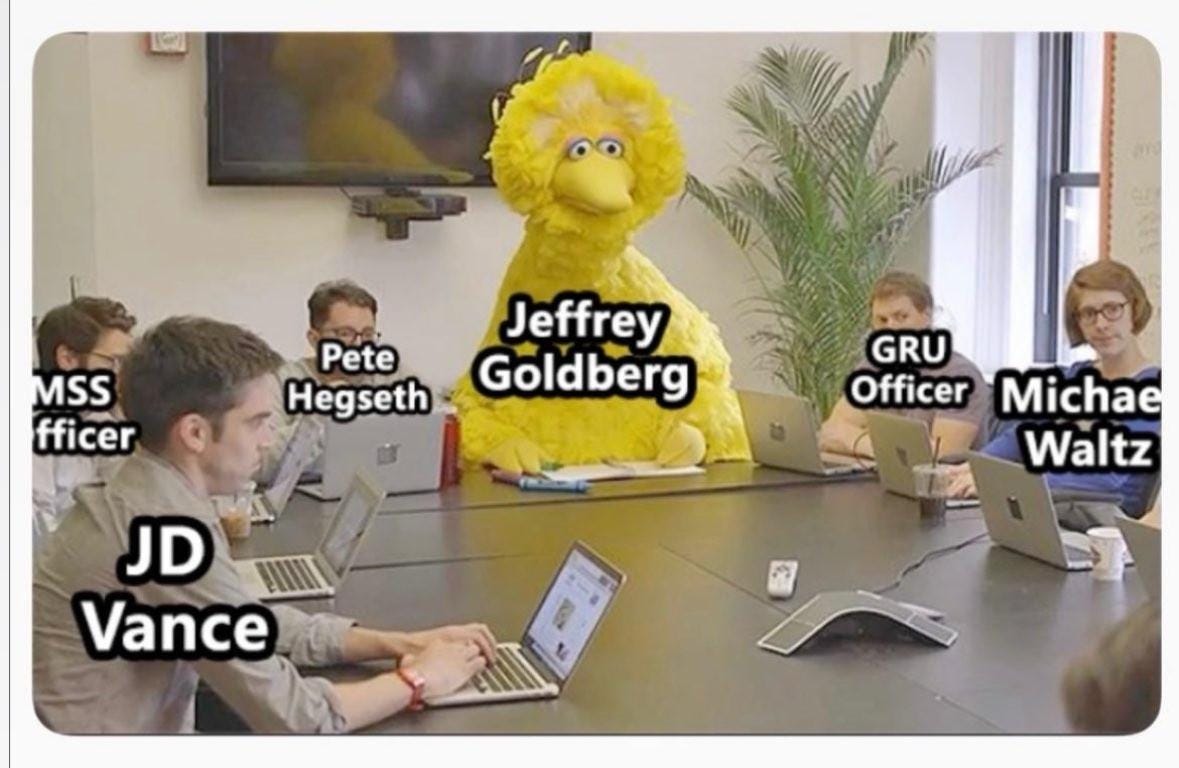
Lesson learned: Protect democratic institutions and norms at all costs.
Solution #2 (Systemic): Protect Observable Information
There are things that governments can do to protect observable information:
🤫
Censorship→ Freedom of Speech🤔
Misinformation→ Fact Checking (Happy Fact Checking Day everyone!)😵💫
Flooding the Zone→ Media Literacy and Decentralized Communication Networks
But the problem with these is frequently that this needs to happen before The Authoritarian Plays are being called.
Which leaves us with one more solution.
Solution #3 (Individuals): Pick Your Lane
In my previous essay - The Transatlantic Rift - I talked about the concept of Picking a Lane
One of the most actionable pieces of advice I’ve seen is the following 👇
Honestly, if you don’t know what else to do in the current environment, just pick a lane/subject and get active.
My friend and writer Richard Delevan has shared a beautiful example in his most recent essay:
Learn from Cory Booker
Removing all policy and moral valence from it, there are just some comms tactics on display here that anyone can and should learn from. So I’m going to show you some of the key clips and how they fit together. In total they’re like 15 minutes. But come back later if you just want to go back to our normal programming.
Twelve hours in (seriously - 12 hours standing up and talking is a long-arse time) - Booker delivered one of his most poignant attacks on the current US administration. Specifically, how it is trying to rule by executive fiat instead of constitutional norms. In this example, how without due process people in the US are being grabbed off the street by plainclothes agents with unmarked cars and masks and without so much as a hearing being shackled and renditioned to a mega-prison in El Salvador chosen not despite its reputation for human right violations but because of it.
Read the full account here:
Yes, Mr. Booker is a senator and has a massive reach. But everyone can get their message out within their means and abilities.
I try to do it with this newsletter. Maybe for you it’s an email, a text message, or a good ol’ conversation with someone.
You can crowd out the noise by adding your signal.
The War for Observable Information
I know this is a dense and draining topic. But it’s an important one.
This topic will require many more explorations and I hope that it opens up a dialogue. If you have thoughts, suggestions, critique about it, please let me know.
At the very least, I hope that you take away something that helps you in your day-to-day.
If someone can destroy our shared reality, then we can re-establish it.
🙏 Thanks to Clemens, Tim, and Apas for discussing early versions of this idea.
And thanks everyone for reading. Please get in touch.
Recommended Reading
The Ultimate Guide to the OODA Loop (Taylor Pearson)
An Introduction to Systems Thinking (Art Lapinsch)
Systems Thinking in Times of Crisis: Three Frameworks for Policymaking 🔥 (Art Lapinsch)
Mr Booker Goes to Washington (Richard Delevan)
Twenty Lessons, read by John Lithgow (Timothy Snyder)



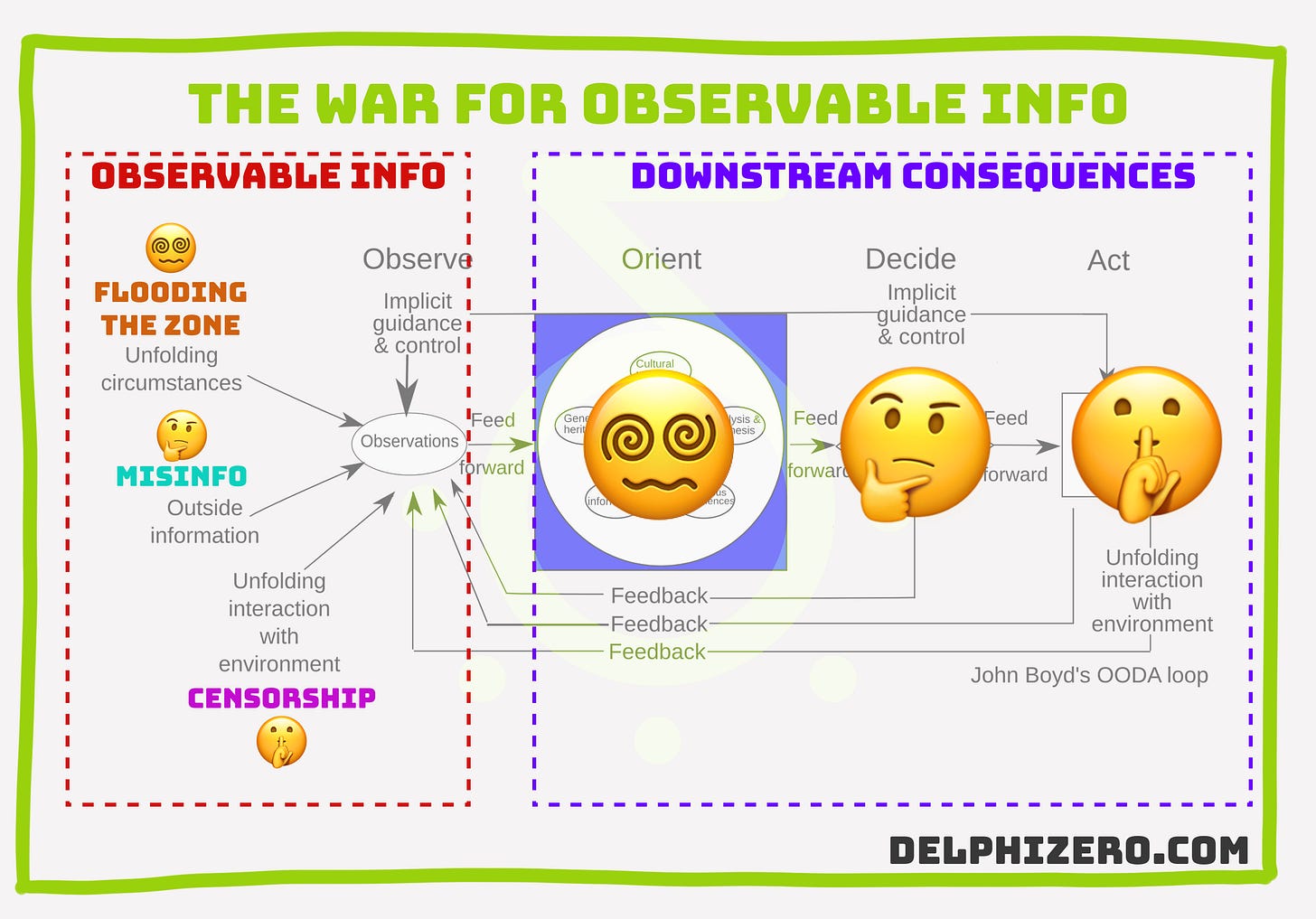
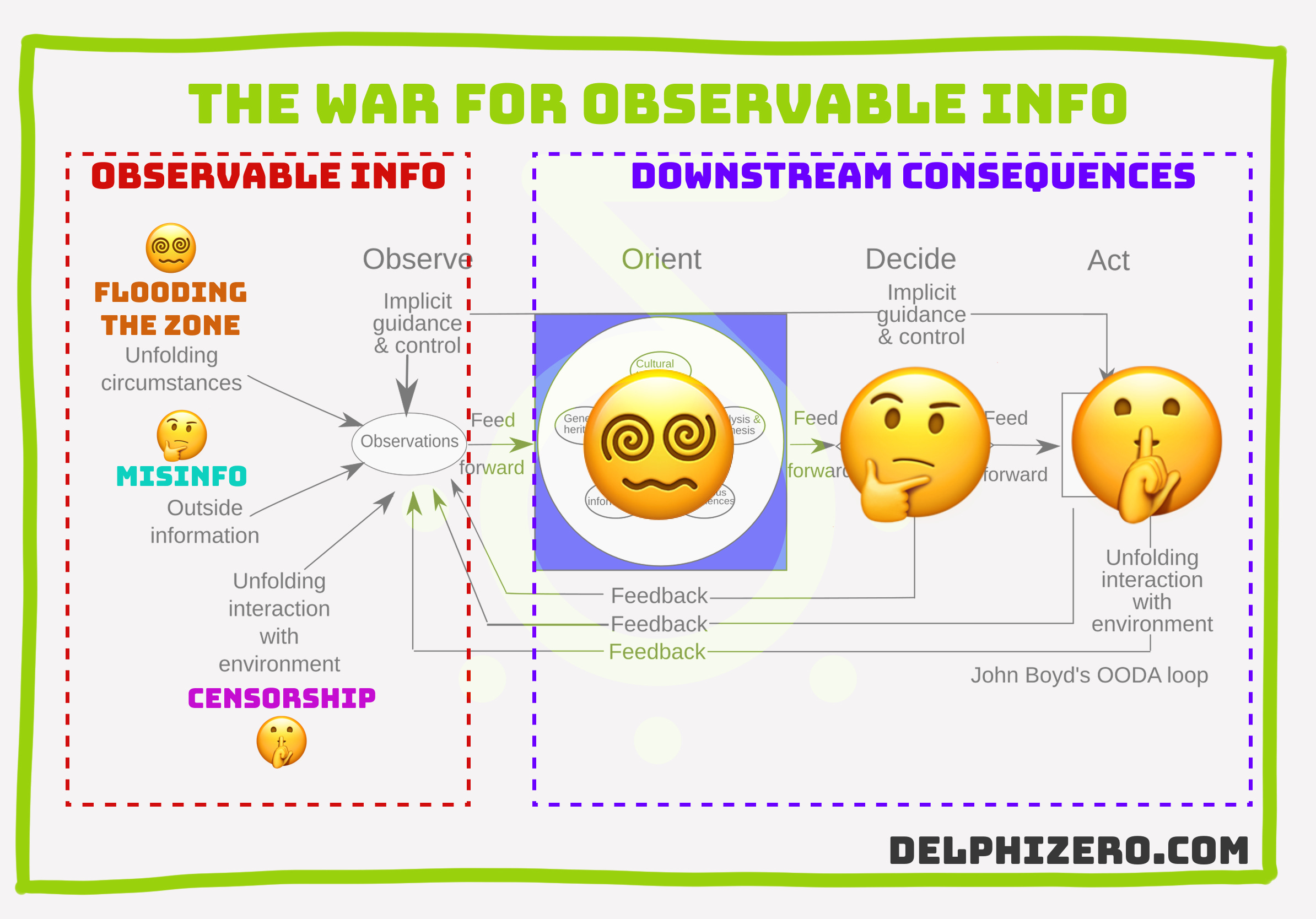
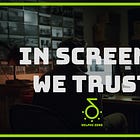
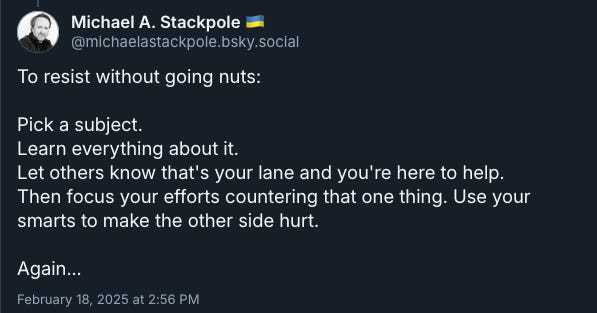

as soon as fear, paranoia, hatred and anything of this nature becomes a leading narrative—major red flag
Hello Art,
I hope this communique finds you in a moment of stillness. Have huge respect for your work.
We’ve just opened the first door of something we’ve been quietly crafting for years—
A work not meant for markets, but for reflection and memory.
Not designed to perform, but to endure.
It’s called The Silent Treasury.
A place where judgment is kept like firewood: dry, sacred, and meant for long winters.
Where trust, patience, and self-stewardship are treated as capital—more rare, perhaps, than liquidity itself.
This first piece speaks to a quiet truth we’ve long sat with:
Why many modern PE, VC, Hedge, Alt funds, SPAC, and rollups fracture before they truly root.
And what it means to build something meant to be left, not merely exited.
It’s not short. Or viral. But it’s built to last.
And if it speaks to something you’ve always known but rarely seen expressed,
then perhaps this work belongs in your world.
The publication link is enclosed, should you wish to open it.
https://helloin.substack.com/p/built-to-be-left?r=5i8pez
Warmly,
The Silent Treasury
A vault where wisdom echoes in stillness, and eternity breathes.